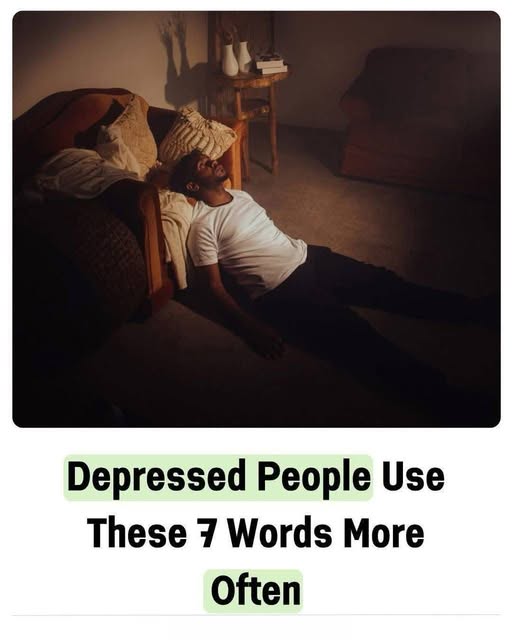7 words or types of words

1. “I” / “Me” / “Myself”
Explanation:
People with depression tend to be more self-focused, often because they are ruminating on their own thoughts and struggles. Using first-person singular pronouns more frequently suggests they are inwardly directed and possibly feeling isolated or misunderstood.
2. “Never” / “Always”
Explanation:
These are absolutist words. Depressed individuals often think in black-and-white terms, such as “I always fail” or “Things never get better.” This type of thinking is linked to cognitive distortions, which can deepen feelings of hopelessness.
3. “Sad” / “Lonely” / “Tired”
Explanation:
These emotionally negative words reflect how the person is feeling. Depression is marked by persistent sadness, fatigue, and social withdrawal — naturally, people experiencing these emotions talk or write about them more often.
4. “Nothing” / “Nobody”
Explanation:
These words express feelings of emptiness or detachment. Saying “Nothing matters” or “Nobody cares” can reflect a loss of hope, purpose, or connectedness — all common features of depressive thinking.
5. “Hate” / “Worthless” / “Useless”
Explanation:
These self-critical or harsh words often appear when someone is struggling with low self-esteem, a core symptom of depression. They might direct anger inward, leading to intense self-blame or self-loathing.
6. “Why”
Explanation:
Depressed individuals often ask existential or rhetorical questions like “Why am I like this?” or “Why do I feel so empty?” This reflects a search for meaning and may show confusion or desperation as they try to understand their emotional pain.
7. “If only” / “Could have” / “Should have”
Explanation:
These phrases suggest regret or rumination about the past. People with depression may dwell on mistakes or missed opportunities, reinforcing feelings of failure or guilt.
Summary:
Linguistic analysis of written or spoken language (like social media posts or therapy transcripts) shows that depressed individuals often use more self-referential, absolutist, and negative emotion words. Mental health professionals can use this insight to identify early warning signs or guide therapy.